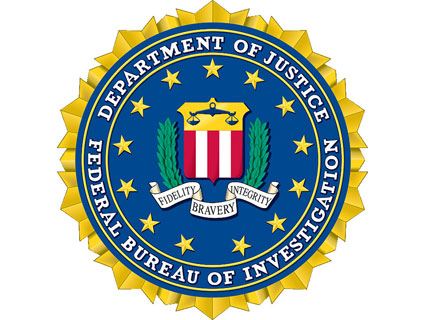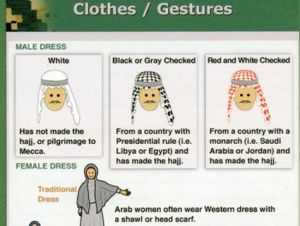
<a href="http://www.flickr.com/photos/mithrandiragain/4861902012/sizes/z/in/photostream/">MithrandirAgain</a>/Flickr
After reports emerged last week that the Federal Bureau of Investigation’s counterterrorism training included materials that depicted Muslims as inherently radical and violent, the bureau moved quickly to reach out to a number American Muslim groups in an effort to smooth over relations. FBI officials promised to take the problem seriously and vowed to conduct an internal review of the materials, which included assertions that mainstream American Muslims were sympathetic to terrorism and that the more devout a Muslim is, the more likely he is to be violent.
“There was acknowledgement that what happened is wrong and what happens needs to be addressed immediately,” says Abed Ayoub, the legal director of the American-Arab Anti-Discrimination Committee (ADC). “It was a good first step in rectifying this.”
But Ayoub and other Arab and Muslim leaders add that more still needs to be done to repair the damage caused by the FBI’s offensive training materials.
The problem, Muslim and Arab groups argue, is that this isn’t the first time they’ve complained about the FBI’s counterterrorism training. In August 2010, several organizations sent a letter to FBI Director Robert Mueller after Islamophobic writer Robert Spencer, who believes “that there is no distinction in the American Muslim community between peaceful Muslims and jihadists,” was invited to give two seminars to Virginia’s Tidewater Joint Terrorism Task Force in July. Spencer was also invited to give a presentation to the US Attorney’s Anti-Terrorism Advisory Council, which is cohosted by the FBI in Norfolk.
The FBI didn’t take the outside groups’ complaints particularly seriously. In its response to the letter, the bureau defended Spencer’s appearance on the grounds that he was a “best-selling author.” A little over a year later, the FBI would try a similar tactic, dismissing the controversial elective training offered by FBI official William Gawthrop as an innocuous one-off. But Wired‘s Spencer Ackerman soon revealed that recent FBI training materials depicted Muslims—not terrorists or extremists, but Muslims generally—as collectively bent on world domination.
The FBI’s previous efforts to dismiss the issue of anti-Muslim training materials, says Farhana Khera of Muslim Advocates, are one reason the FBI’s promised “internal review” won’t be enough. “We’re pleased that this very serious issue is finally receiving the attention of the FBI leadership, but we still believe that an internal FBI review is insufficient at this stage,” Khera says.
On a conference call with several Muslim and Arab organizations, the FBI took pains to note that several agents had registered complaints about Gawthrop’s training materials, and others had walked out of a session in disgust. But the FBI’s excuses left many on the conference call with more questions: If FBI officials had raised concerns about Gawthrop’s work, why was the issue not addressed immediately? A report from an independent inspector general “is the only way to ensure that the FBI is [addressing the issue],” Khera adds.
The FBI missed opportunities by not taking the potential for cooperation with Muslim groups more seriously, other critics say. If FBI officials had asked for the Muslim American community’s input, they could have stopped the scandal before it happened. “Why did they not ask for the community’s advice on the [training material]? Why didn’t they use the resources at their disposal?” asks the ADC’s Ayoub. “There was no outreach done. That’s disappointing.”
The revelations about the training materials also damaged existing relationships, argues Mohamed Elibiary of the Freedom and Justice Foundation. “You really need very substantive community relationships and partnerships if you want to get to the point where you have community-based interventions and lessening of violent extremism and radicalization,” Elibiary says. “They need to be able to feel like they can call the FBI when there’s a problem with their kids.”
In the future, Elibiary warns, FBI headquarters has to follow the example of its best field offices and do more to reach out to Muslim communities beyond the DC area. “There’s a difference between engaging with the leadership in DC and the leadership across the country,” he says. “You need to engage with both. For what you say in DC to have an impact in Des Moines, you need to be talking to someone there.”














